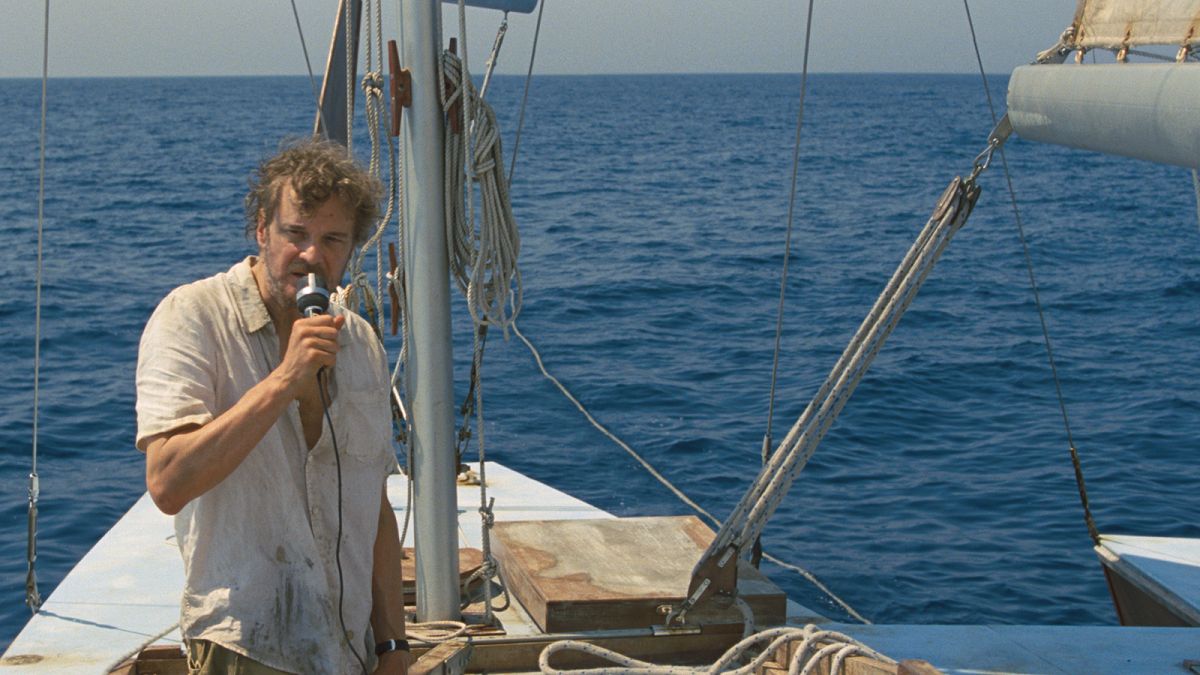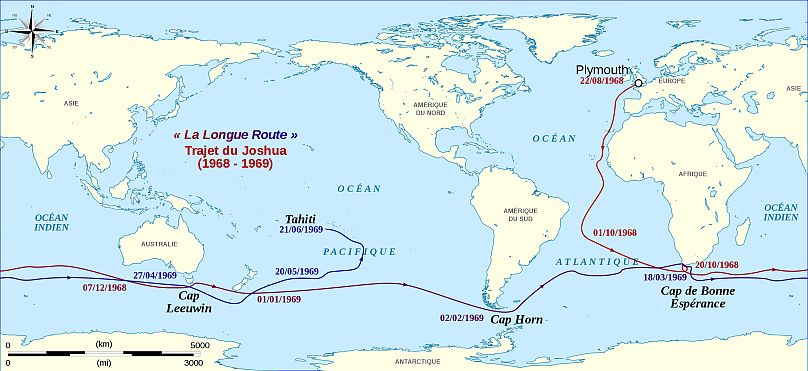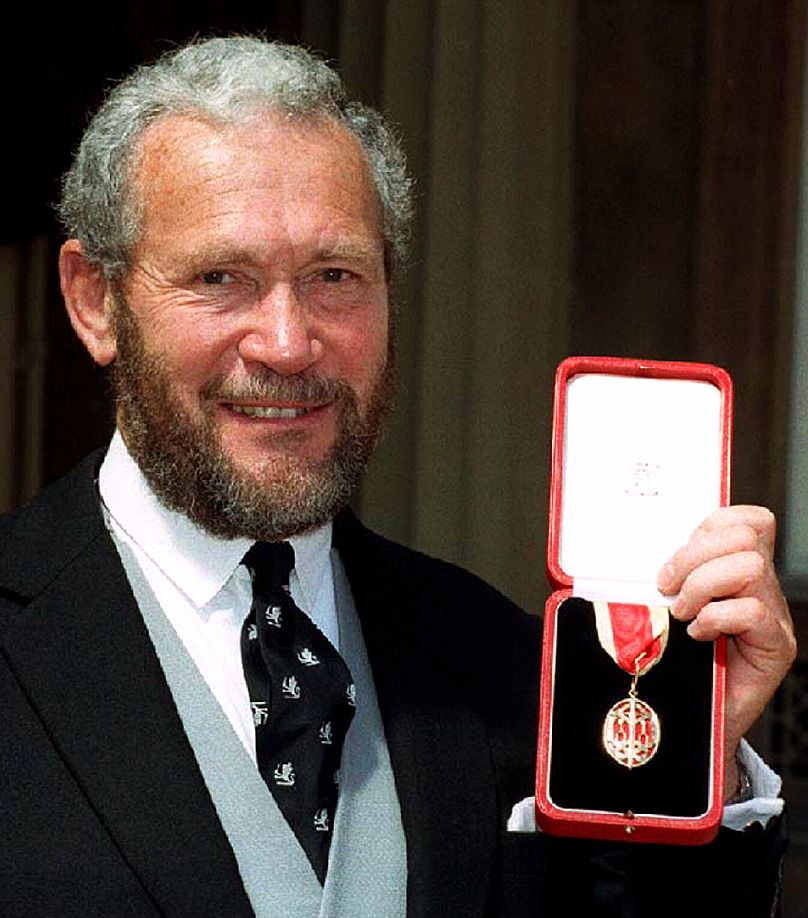Suicides, capsizes, and a man who went round the world again — the extraordinary Golden Globe race of 1968.
Suicides, disintegration, and a man who went round the world again.
The extraordinary Golden Globe race of 1968 has been told on screen — Colin Firth stars in "The Mercy" (above) — in documentaries and in literature. But the strangeness of the competition has come back into the spotlight today after a competitor in this year's 50th-anniversary race had to be rescued while adrift in the Indian Ocean.
The sailor, Indian naval commander Abhilash Tomy, called for emergency aid on Saturday after his yacht was badly damaged in a storm about 3,500 km west of the Australian coast, leaving him with severe back injuries.
Tomy, whose website says he became the first Indian to circumnavigate the globe in 2013, was participating in the 48,000-km race, which bans the use of modern technology, except for communications gear.
Sir Robin Knox-Johnston took home the trophy in the original 1968 race, thus becoming the first person to complete an unassisted, non-stop, single-handed circumnavigation of the world. However, his story is just the tip of the iceberg.
Donald Crowhurst
British actor Colin Firth portrayed Donald Crowhurst on screen earlier this year. Crowhurst, an unknown, weekend sailor, bravely but foolishly took part in this most dangerous of races, and embarked upon an unlikely scheme where he faked his log books and communications to convince his team that he was speeding around the globe. In reality, he was drifting off the coast of South America having been ashore (immediate disqualification — if found out) to have his leaking three-hulled boat fixed.
Crowhurst waited until the remaining competitors came back around Cape Horn, then slotted himself back into the race, planning to come in a respectable third. But soon he was on course to win the £5,000 prize for fastest man home, and he knew that, with the scrutiny that would come with a victory, his deception would be uncovered. Already vastly affected by having been on his own carrying so much stress for so many months, Crowhurst headed back out into the mid Atlantic where his boat was found unmanned on July 10, 1969.
Here I Go Again
Experienced French sailor Bernard Moitessier would have been a serious contender for fastest man home but he had a change of heart after successfully rounding the cape. According to his book "The Long Way", Moitessier catapulted a message, addressed to the London Times newspaper, onto the deck of a passing ship which read: "parce que je suis heureux en mer et peut-être pour sauver mon ame" (because I am happy at sea and perhaps to save my soul). And with that he sailed off around the globe once more, landing in Tahiti and making his home there for some time. He hoped his wife would understand his decision not to return home, and by all accounts, she did.
His abandonment of the race was in part a protest against the monetisation of sailing, which he found vulgar.
Falling Apart
South African-born Royal Navy officer Nigel Tetley was another victim of the race. After making fantastic time for most of the way, his trimaran was beginning to disintegrate, having taken too many knocks. Thinking he was under legitimate pressure from Crowhurst, he continued to push his boat as hard as he could. This was his downfall as his vessel came apart around 2,000 kilometres from the finish. If only he had known what Crowhurst knew. The psychological factor took its toll on Tetley, who was found hanging from a tree in woods near the English port of Dover in February 1972. It was initially thought to be suicide but an open verdict was recorded later.
Brave Sir Robin
All this meant that the first man past the post was also the fastest, being, as he was, the only finisher. Sir Robin Knox-Johnston donated his £5,000 prize to the family of Donald Crowhurst.
Golden Globe Race 2018
Competitors left Les Sables d'Olonne Harbour on July 1 for the 50th-anniversary race.
In a strange irony, injured sailor Abhilash Tomy's boat, Thuriya, is a replica of Knox-Johnston's winning yacht, Suhaili. Sadly, it will not enjoy the same success.


